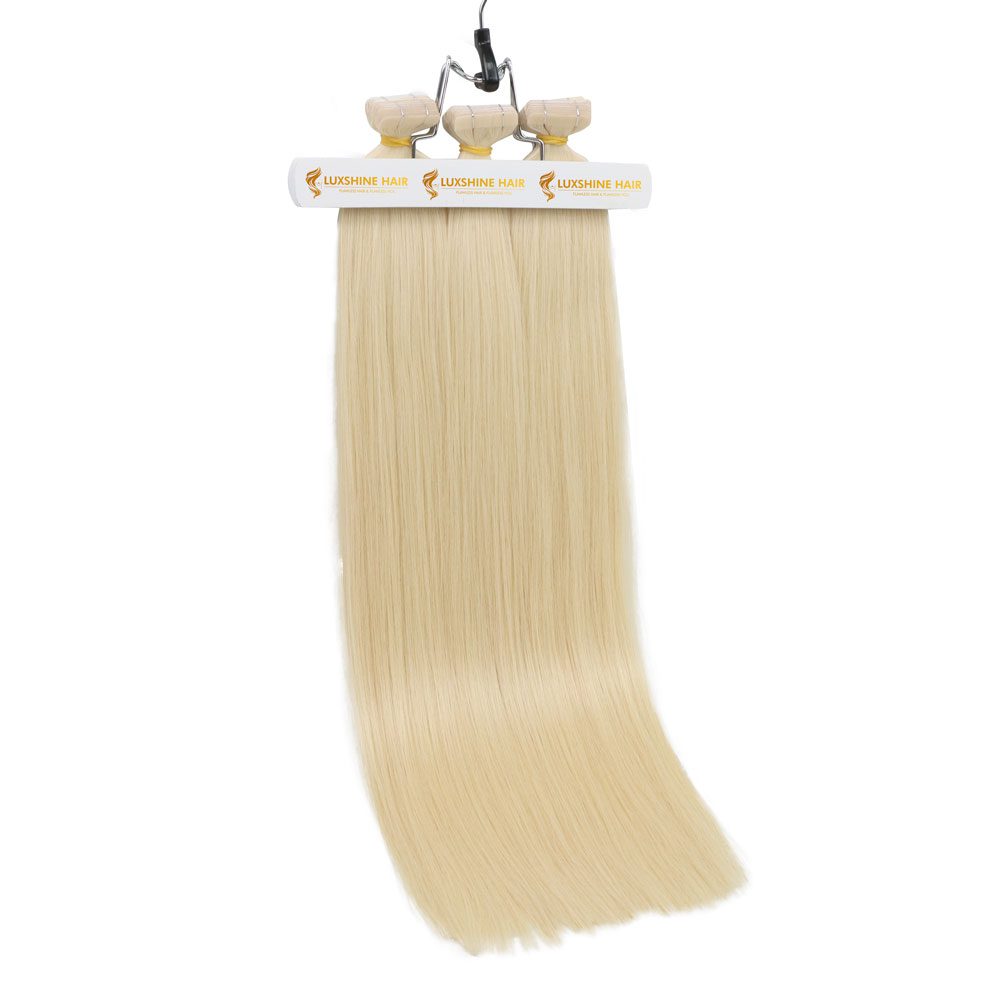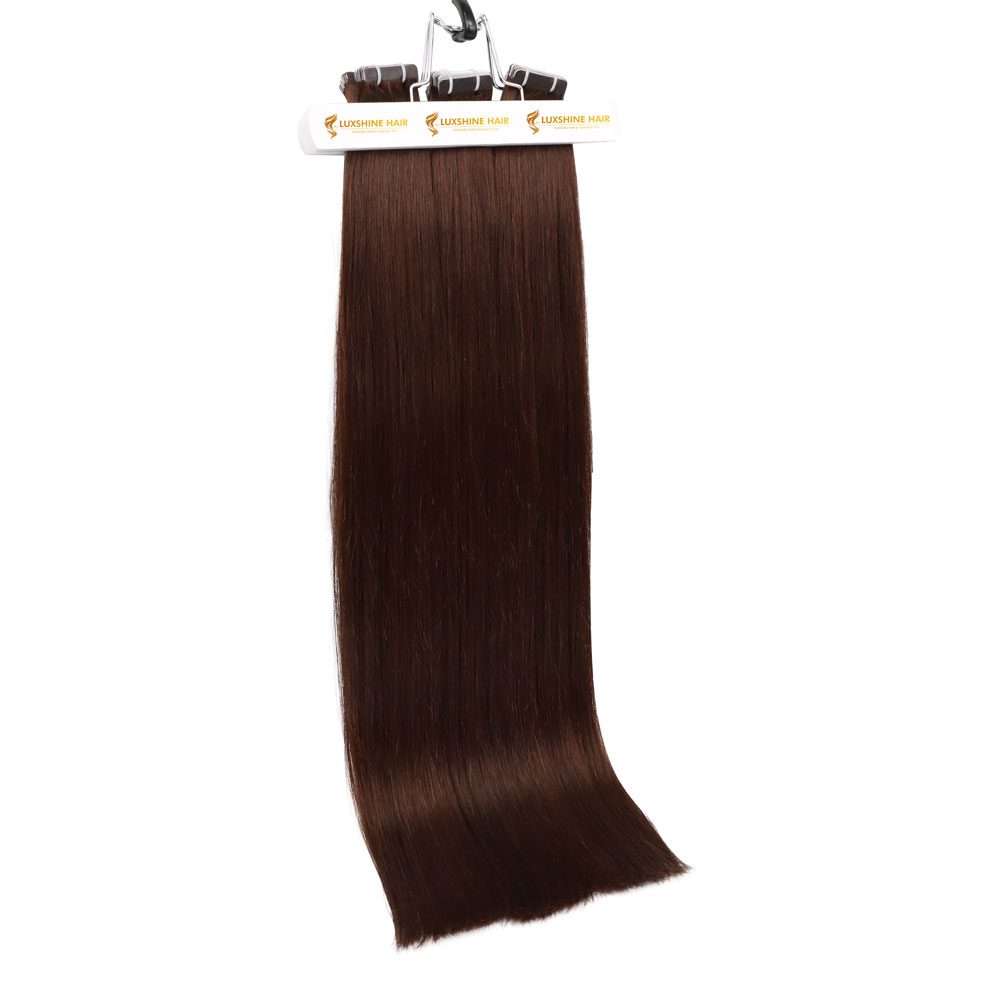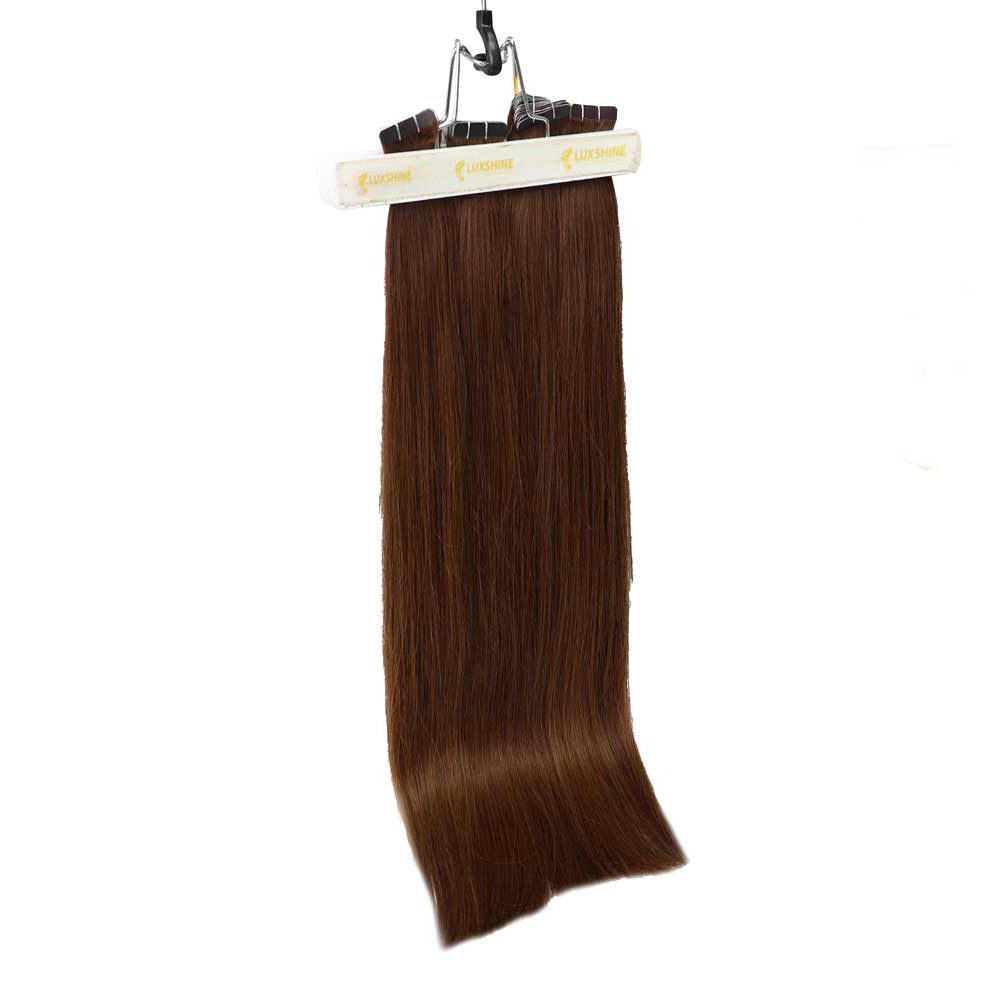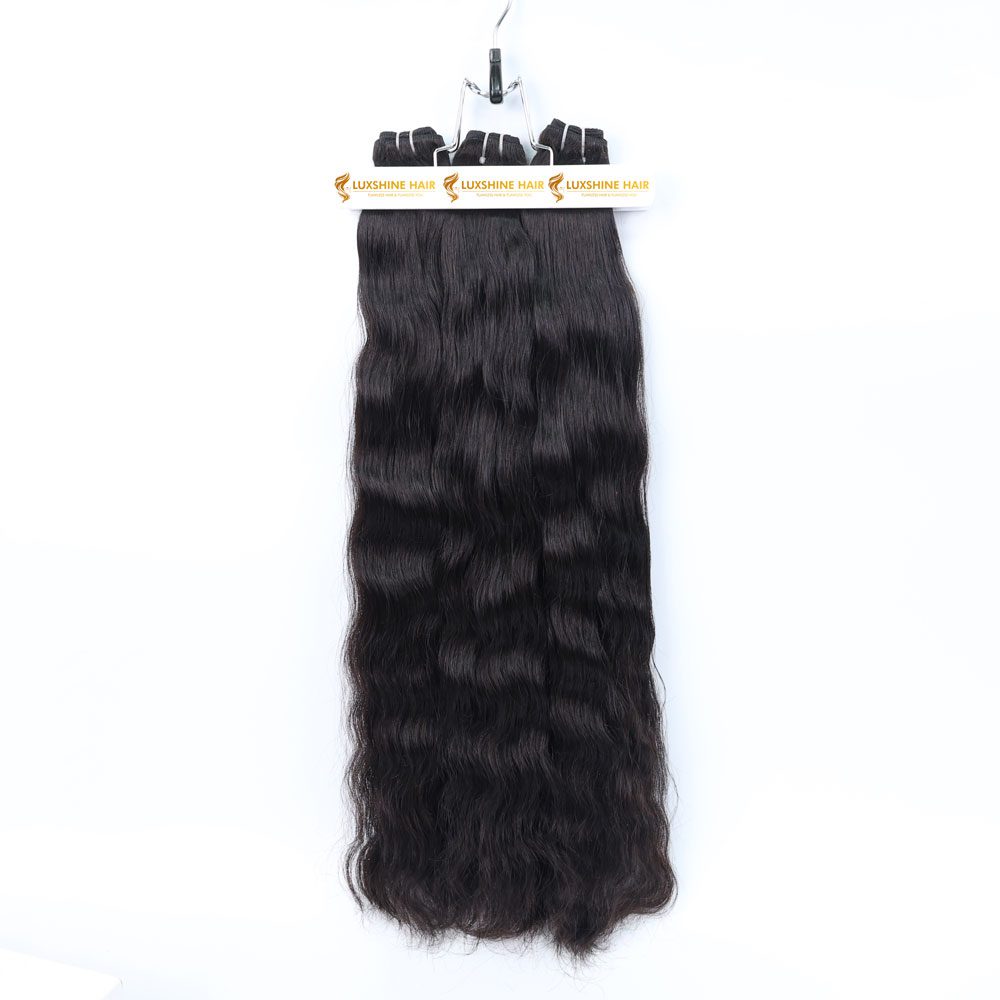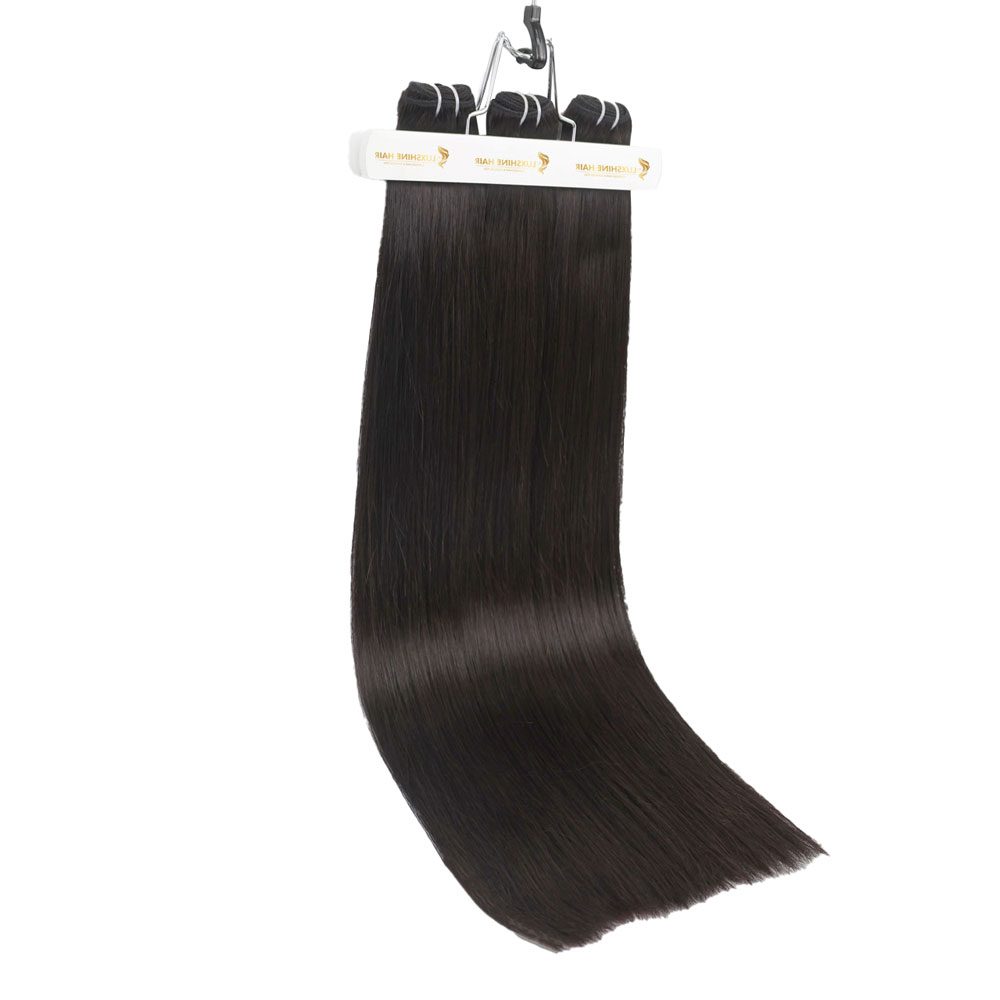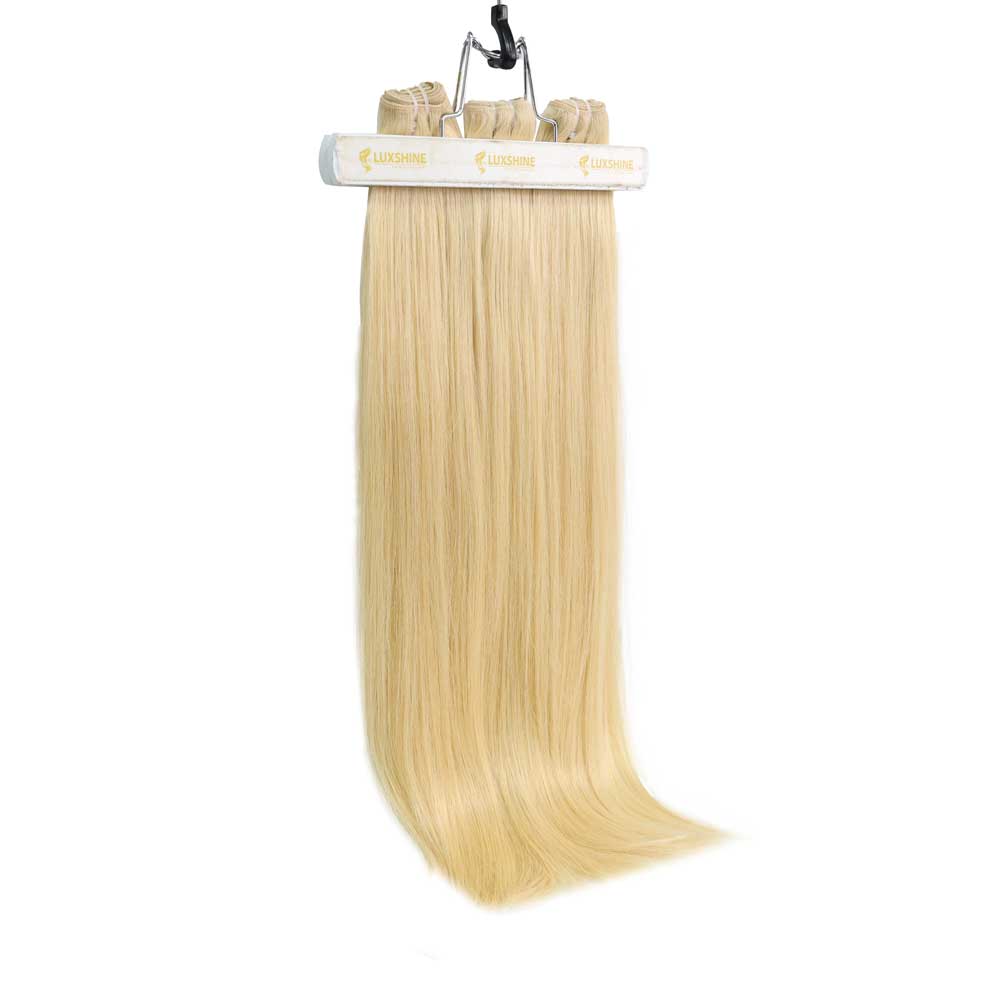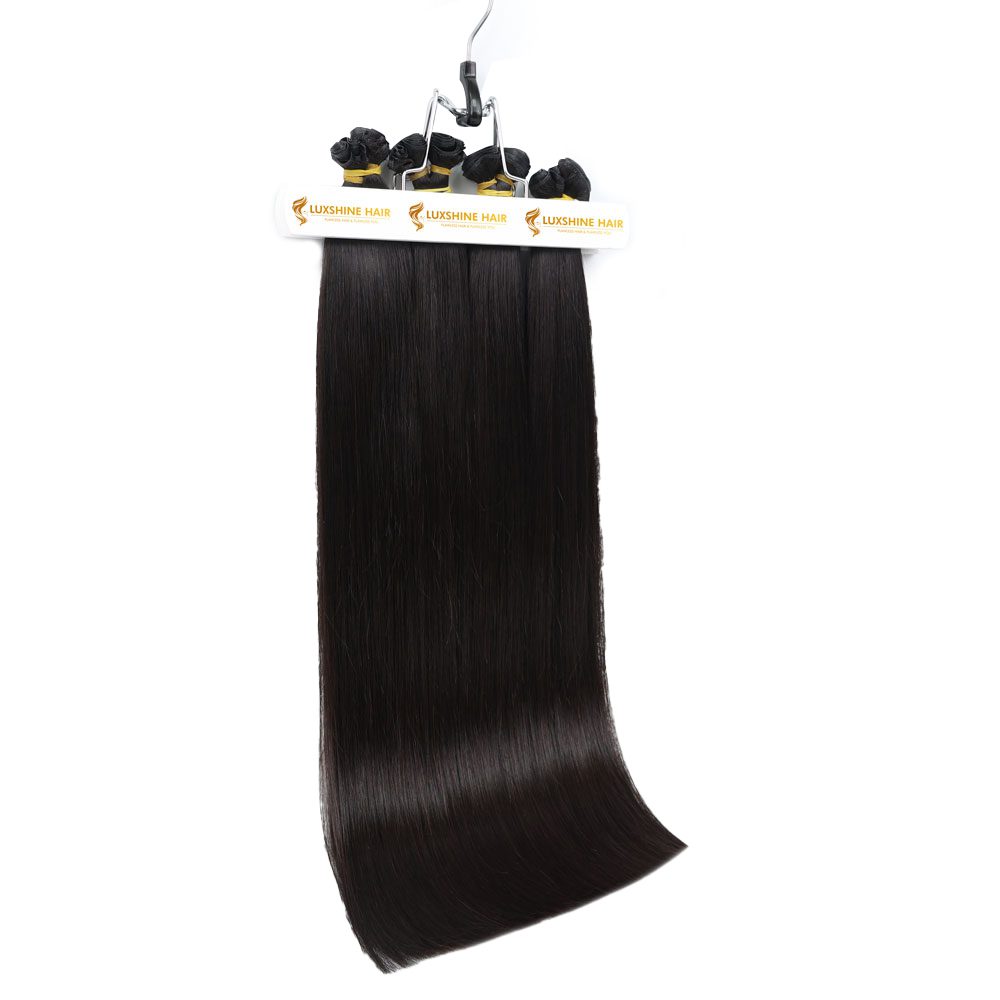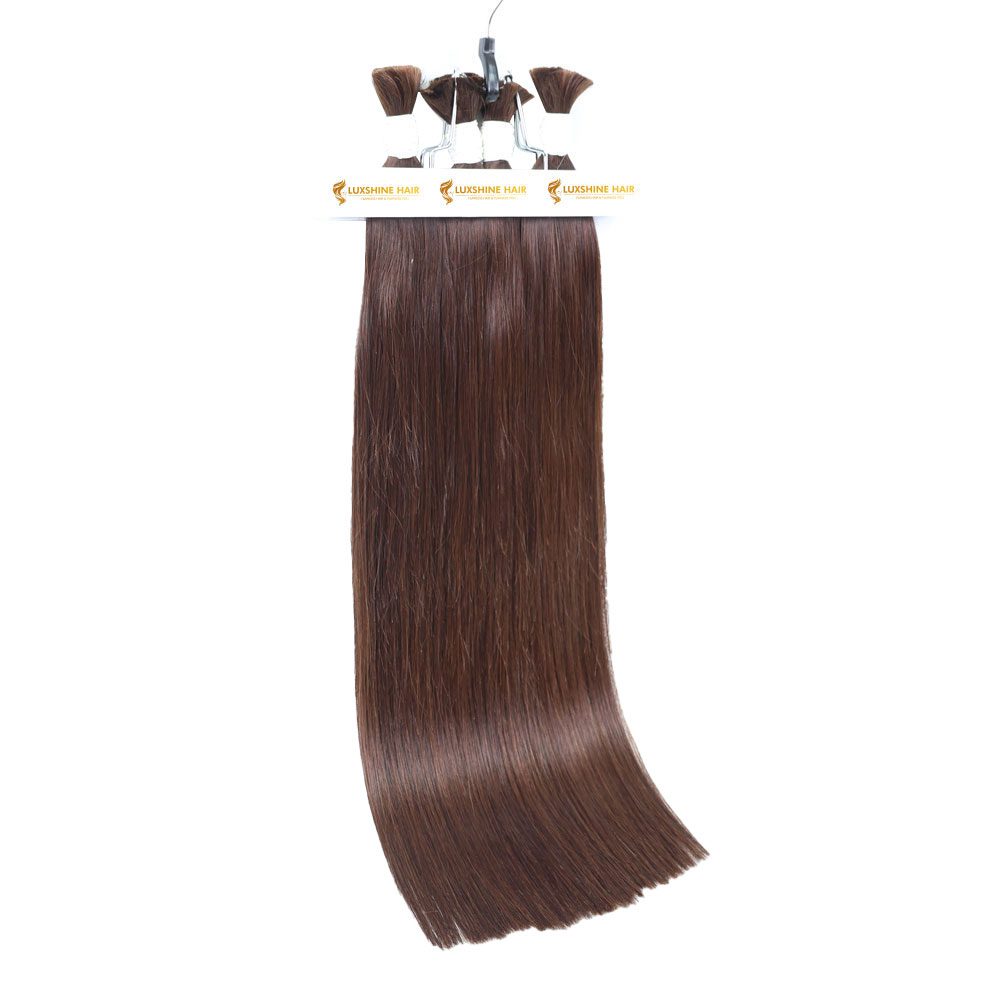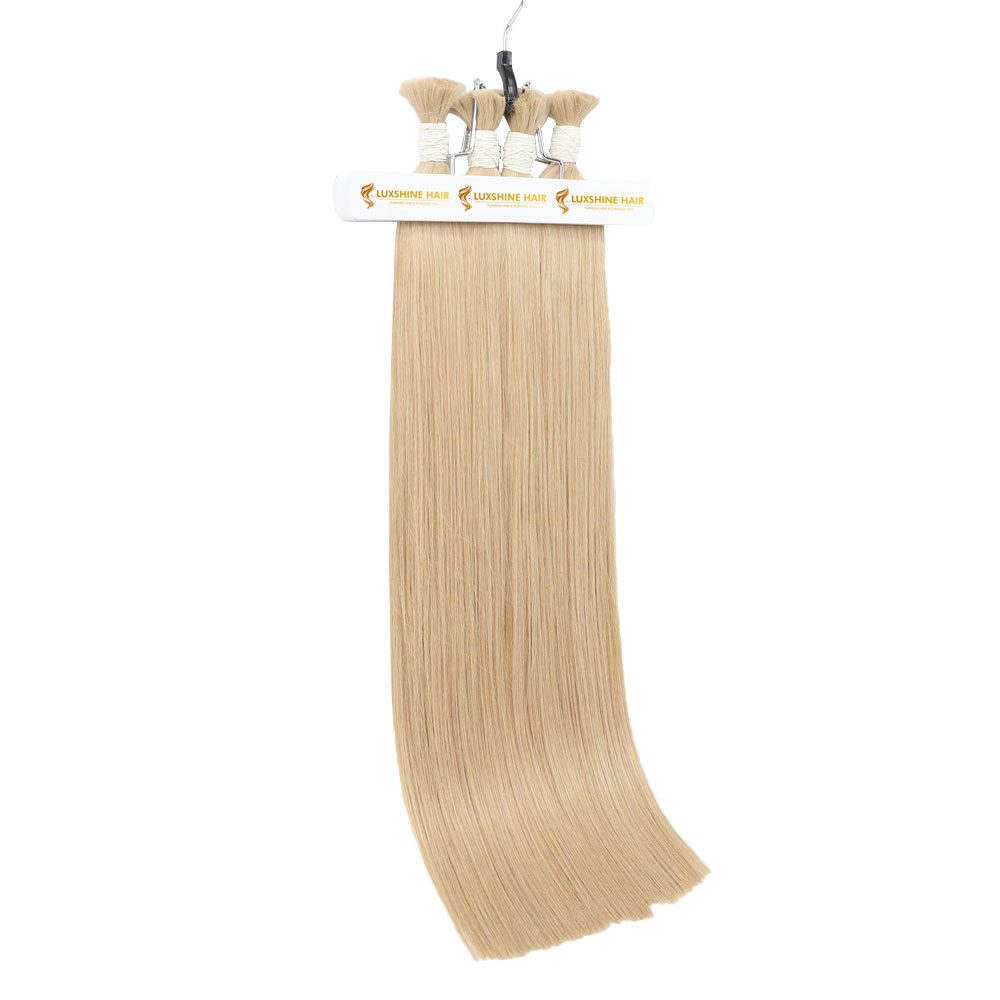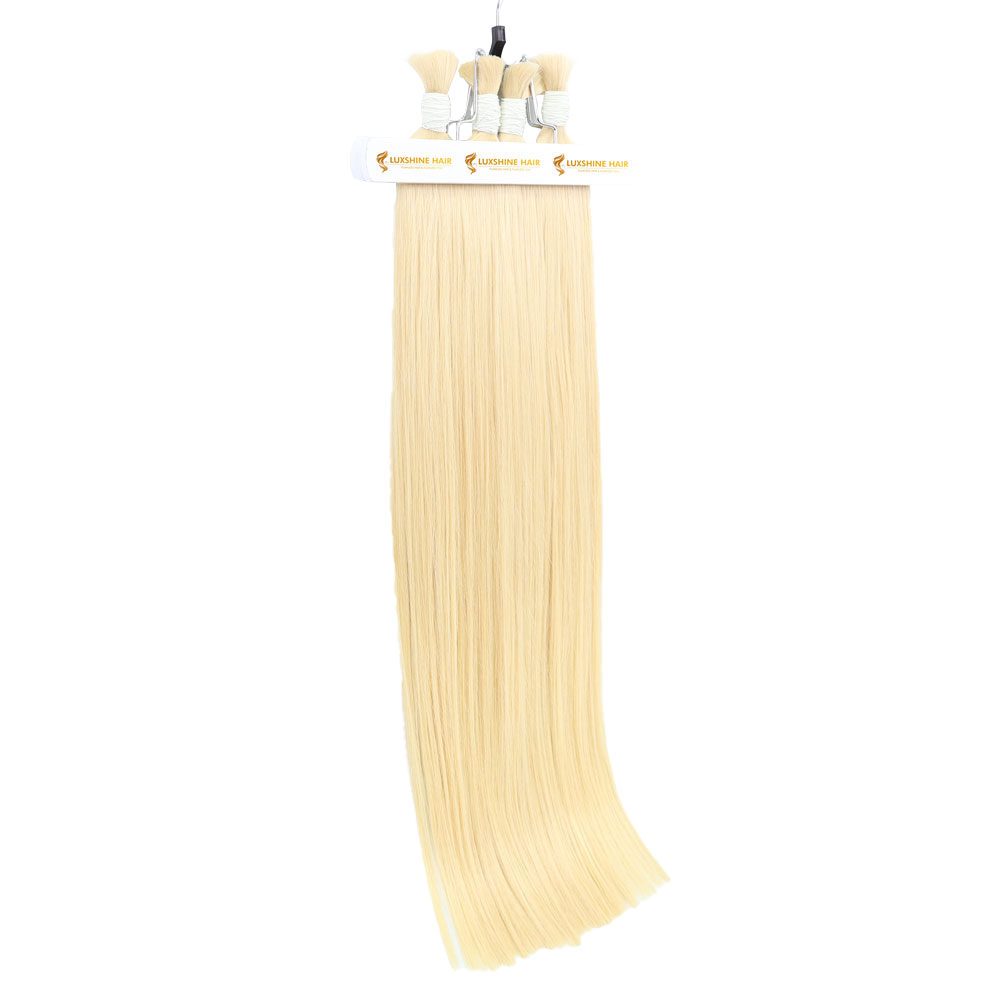A stunning human hair wig can completely transform your appearance and boost your confidence. Even the highest quality wigs, however, can become frizzy, leaving you unhappy and unsure of how to restore their natural sheen. Understanding your concern, Luxshinehair will reveal the secrets to reviving your frizzy wig in this complete guide – How to fix a frizzy human hair wig.
Whether you’re a seasoned wig wearer or new to the game, our instructions and professional suggestions will help you bring your wig back to life and confidently sport that gorgeous haircut once more!

What Makes Wigs Frizzy?
Why is my human hair wig frizzy? Before we dive into solutions, it’s crucial to understand why frizz occurs in the first place. Here are some common causes:
- Lack of Moisture: Unlike natural hair, human hair wigs don’t receive natural scalp oils, making them prone to dryness.
- Overwashing: Washing a wig too frequently strips it of essential moisture, leading to brittleness and frizz.
- Heat Damage: Excessive use of heat-styling tools without protection can weaken the wig’s structure, causing frizz and split ends.
- Improper Storage: Storing a wig in a humid or tightly packed space can lead to tangles and unwanted frizz.
- Hard Water Exposure: Washing your wig with hard water can leave mineral deposits that dry out the hair strands.
- Low-Quality Products: Using shampoos and conditioners with harsh chemicals like sulfates and alcohol can dehydrate the hair, making it prone to frizz.
- Friction: Rubbing against clothing, pillows, or improper brushing techniques can create static and flyaways.
Understanding these causes will help prevent frizz from occurring in the future. Now, let’s explore how to fix human hair wig when frizz becomes a problem.

How to Fix a Frizzy Human Hair Wig
If your wig has become frizzy, follow these step-by-step solutions to restore its smoothness and shine.
1. Detangle Your Wig Properly
Frizz is often accompanied by tangles, so detangling is the first step to restoring your wig’s sleekness.
- Use a wide-tooth comb or a wig brush with soft bristles.
- Start from the tips of the hair and work your way up to avoid breakage.
- If your wig is severely tangled, spritz a leave-in conditioner or detangling spray before combing.
- Never detangle a wet wig, as this increases the risk of shedding and breakage.

2. Wash with a Gentle, Sulfate-Free Shampoo
- Fill a basin with lukewarm water and add a sulfate-free, moisturizing shampoo.
- Submerge the wig and gently swish it around to loosen dirt and oil.
- Avoid scrubbing or twisting the hair, as this can cause additional frizz.
- Rinse thoroughly with cool water to help seal the cuticle and reduce flyaways.

3. Deep Condition for Maximum Hydration
Since wigs lack natural scalp oils, deep conditioning is essential for combating dryness.
- Apply a generous amount of conditioner to the hair, avoiding the lace or cap area.
- Use a wide-tooth comb to distribute the product evenly.
- Cover the wig with a plastic cap and let the conditioner sit for at least 30 minutes.
- Rinse with cool water to lock in moisture and enhance shine.

4. Use a Leave-In Conditioner or Hair Serum
To further prevent frizz, apply a lightweight leave-in conditioner or hair serum after washing.
- Focus on the mid-lengths and ends to prevent product buildup at the roots.
- Choose products with ingredients like argan oil, coconut oil, or keratin to nourish the hair.
- Avoid heavy products that can weigh down the wig or make it appear greasy.
5. Store Your Wig Correctly
Proper storage helps maintain the wig’s longevity and prevents unnecessary frizz.
- Place the wig on a mannequin head or wig stand when not in use.
- Cover it with a satin or silk scarf to minimize friction.
- Store in a cool, dry area away from direct sunlight.

See more related post here: How to Store a Wig
6. Blow Dry with a Low Heat Setting
Air-drying is the best option for preventing frizz, but if you must use heat, follow these steps:
- Pat the wig gently with a microfiber towel to remove excess water.
- Use a blow dryer on a low heat setting, directing airflow downward to smooth the hair cuticle.
- Attach a diffuser or nozzle to reduce static and enhance control.
7. Minimize Heat Styling
Excessive heat styling can cause long-term damage. If you need to use hot tools, always follow these precautions:
- Apply a heat protectant spray before styling.
- Use ceramic or tourmaline flat irons and curling wands, as they distribute heat more evenly.
- Keep the temperature below 300°F (150°C) to prevent burning or drying out the hair.

8. Use Anti-Frizz Sheets or Sprays
There are specific anti-frizz sheets and sprays designed for wigs that help tame flyaways and static.
- Lightly mist the wig with an anti-frizz spray and run your fingers through the hair.
- Use an anti-frizz sheet to smooth down any stubborn areas.
9. Apply a DIY Hair Mask for Extra Hydration
If your wig is extremely dry and frizzy, try a deep-conditioning hair mask.
- Mix one tablespoon of coconut oil, one teaspoon of honey, and one tablespoon of conditioner.
- Apply the mask to the hair, avoiding the lace area.
- Leave it on for 30 – 60 minutes before rinsing with cool water.

Conclusion
A frizzy human hair wig doesn’t have to be the end of the world. With the right care and attention, you can restore your wig to its former glory. Remember these key steps: detangling, gentle washing, deep conditioning, moisturizing, and smart heat styling. By following these guidelines on how to fix a frizzy human hair wig, you’ll be well on your way to enjoying a beautiful, frizz-free wig once again. For human hair wig, contact Luxshine Hair – a trustworthy Vietnamese hair vendor via WhatsApp (+84) 862 552 088 or through our website, luxshinehair.com.
By applying these methods, you’ll not only extend the life of your wig but also keep it looking vibrant and fresh. Regular maintenance and proper care can make a significant difference in the longevity and appearance of your human hair wig. Stay confident and beautiful with your perfectly styled wig!
What to read next: Synthetic vs Human Hair Wigs – Which One Is Better?





